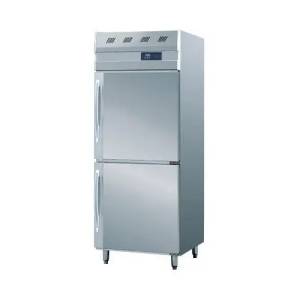Description
Refrigeration: Keeping Your World Cool and Fresh
Revolutionizing Temperature Control for Enhanced Food Safety, Product Preservation, and Comfort
Refrigeration technology plays a vital role in our modern lives, ensuring the safety and quality of our food, preserving valuable goods, and maintaining comfortable environments. From household refrigerators to large-scale industrial systems, refrigeration underpins countless aspects of our daily routines and industrial processes. This comprehensive overview delves into the diverse applications and key features of refrigeration systems.
Key Applications:
- Food Preservation: Refrigeration is critical for extending the shelf life of perishable food items, preventing spoilage, and reducing food waste. This includes residential refrigerators, commercial refrigerators and freezers in supermarkets, and specialized cold storage facilities for large-scale food distribution.
- Pharmaceutical & Healthcare: Maintaining precise temperature ranges is crucial for the efficacy and safety of pharmaceuticals, vaccines, and other medical products. Refrigeration systems are essential in hospitals, pharmacies, and research laboratories.
- Industrial Processes: Many manufacturing processes require controlled temperatures, and refrigeration plays a crucial role in various industries, including food processing, chemical manufacturing, and materials science.
- Comfort Cooling: Refrigeration systems are the backbone of air conditioning units, providing comfort and productivity in homes, offices, and public spaces.
Types of Refrigeration Systems:
- Vapor-Compression Refrigeration: This is the most common type, using a refrigerant to absorb heat and then release it in a condenser. Variations include single-stage, multi-stage, and cascade systems depending on the temperature range and application.
- Absorption Refrigeration: This system uses a heat source (like natural gas or waste heat) to drive the refrigeration cycle, offering an alternative to electricity-dependent systems.
- Thermoelectric Refrigeration: This technology utilizes the Peltier effect to create cooling without refrigerants, offering a compact and environmentally friendly solution for specific applications.
- Air Cycle Refrigeration: These systems utilize compressed air to achieve cooling, often used in high-altitude applications or where flammability is a concern.
Key Features and Considerations:
- Refrigerant Selection: The choice of refrigerant depends on factors like environmental impact, efficiency, and safety regulations. Modern systems are increasingly employing environmentally friendly refrigerants with lower global warming potential (GWP).
- Energy Efficiency: Energy consumption is a major consideration, particularly for large-scale systems. Energy-efficient components and optimized designs are crucial for minimizing operating costs and environmental impact.
- Temperature Control & Monitoring: Precise temperature control is essential for most applications. Advanced systems incorporate digital controls, sensors, and alarms to ensure accurate and reliable temperature maintenance.
- Maintenance & Service: Regular maintenance, including cleaning, filter replacement, and refrigerant checks, is crucial for optimal performance and longevity.
Choosing the Right Refrigeration System:
Selecting the appropriate refrigeration system depends on various factors, including:
- Application requirements: Temperature range, capacity, and specific needs.
- Energy efficiency goals: Minimizing operating costs and environmental footprint.
- Budget: Initial investment and ongoing maintenance costs.
- Environmental regulations: Compliance with local and international standards.
Conclusion:
Refrigeration technology is indispensable for modern society. Understanding the different types, applications, and features of refrigeration systems is crucial for making informed decisions and ensuring efficient, reliable, and environmentally responsible cooling solutions. From preserving food to providing comfortable living and working environments, refrigeration continues to play a vital role in shaping our world.
